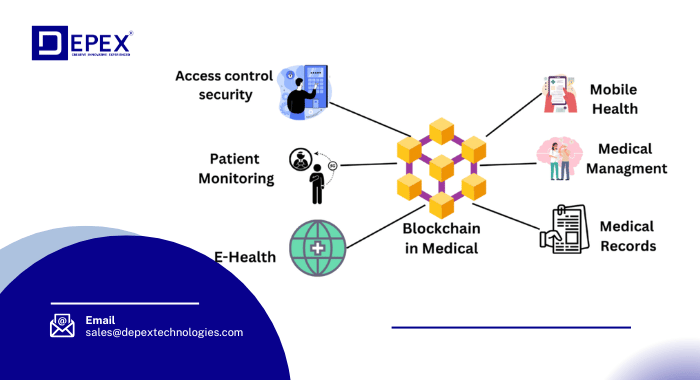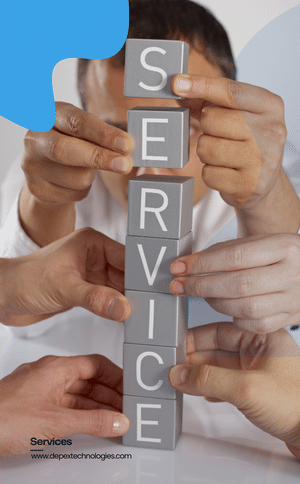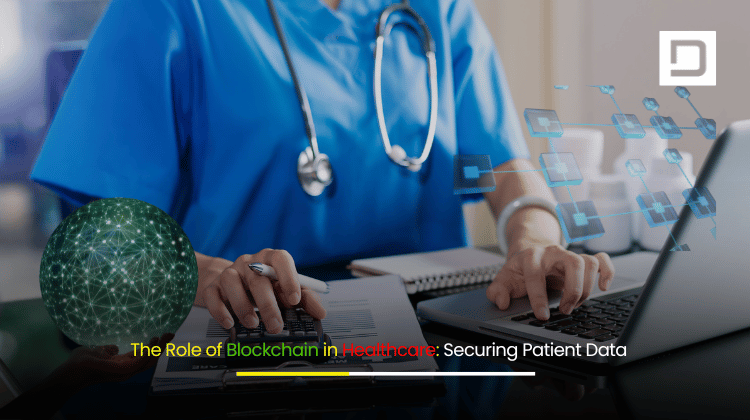The Role of Blockchain in Healthcare: Securing Patient Data and Improving Transparency
Blockchain technology has made significant strides across various industries, and healthcare is no exception. As healthcare continues to embrace digital transformation, blockchain presents an opportunity to secure sensitive patient data, enhance transparency, and streamline processes. In this blog, we will explore how blockchain can revolutionize healthcare by ensuring data security and improving transparency.
What is Blockchain?
At its core, blockchain is a decentralized ledger technology that securely records transactions across multiple computers. Each transaction is stored in a “block” and then linked to the previous block, forming a chain. This decentralized structure makes blockchain resistant to fraud and ensures that data cannot be altered without detection.
In healthcare, blockchain can store patient data securely, improve the management of medical records, enhance billing transparency, and much more. Let’s dive into the specific benefits blockchain brings to healthcare.
1. Securing Patient Data
One of the biggest concerns in healthcare is the protection of patient data. With more healthcare systems going digital, sensitive patient information is at risk of cyberattacks and data breaches. Traditional data storage methods often rely on centralized databases, which can be targeted by hackers.
Blockchain offers a solution by decentralizing the storage of medical records. Each record is encrypted and stored across a network of computers, which means unauthorized access is much harder to achieve. Since blockchain is immutable, once data is entered, it cannot be altered or erased without detection. This ensures the integrity of medical records, making it nearly impossible to tamper with sensitive information.
Additionally, blockchain gives patients more control over their data. They can decide who has access to their records, ensuring that only trusted healthcare providers can view their information.
2. Enhancing Transparency in Healthcare
Transparency is often lacking in healthcare, where patients may not fully understand how their medical data is being used or who is accessing it. Blockchain solves this issue by creating a transparent, auditable system where every action taken on a patient’s record is logged.
This means patients can track who accessed their records, when, and why. In turn, healthcare providers and insurers can gain better insights into treatment decisions, ensuring that everything is done with accountability.
For instance, blockchain can also track the development and distribution of pharmaceutical products, providing patients with assurance that the drugs they take have been properly tested and are safe. Moreover, the technology can ensure that billing practices are transparent, reducing the risk of overcharging or fraud.
3. Streamlining Healthcare Processes
Blockchain can significantly streamline administrative tasks in healthcare. With blockchain, tasks like record-keeping, billing, and processing medical claims can be automated, reducing human error and administrative costs.
For example, smart contracts (automated contracts with the terms written in code) can help automate the approval and payment processes for medical claims. This not only accelerates the entire process but also reduces the risk of disputes.
Additionally, blockchain can help verify the authenticity of medical products. Healthcare providers can quickly check the origin of medical supplies and pharmaceuticals, ensuring that patients receive high-quality, genuine products.
4. Facilitating Better Collaboration Between Healthcare Providers
Efficient collaboration between healthcare providers is essential for high-quality patient care. However, sharing patient data across different institutions is often challenging due to incompatible systems.
Blockchain makes data sharing more efficient and secure. It provides a universal platform where healthcare providers can access up-to-date patient records, regardless of the system they use. This can improve the quality of care, as doctors and specialists can make better-informed decisions based on a complete medical history.
For example, if a patient is referred from one hospital to another, blockchain allows the second hospital to immediately access the patient’s medical records, ensuring no time is wasted in treatment and reducing the likelihood of errors.
5. Overcoming Interoperability Challenges
A major challenge in healthcare is the lack of interoperability, or the ability for different systems to communicate. Many healthcare providers use different electronic health record (EHR) systems, which often do not “speak” to each other, making it difficult to share patient data.
Blockchain helps solve this problem by providing a standardized platform that allows different EHR systems to communicate with each other seamlessly. This ensures that healthcare providers can access accurate and up-to-date patient information, regardless of the system they are using.
6. Reducing Healthcare Fraud
Healthcare fraud is a significant issue, costing the industry billions each year. Fraudulent activities, such as billing fraud or medical identity theft, can lead to massive financial losses and undermine trust in the healthcare system.
Blockchain’s transparency and immutability make it a powerful tool in combating healthcare fraud. Every transaction—whether it’s a medical claim, a prescription, or a billing entry—is securely recorded on the blockchain. This means that each transaction can be easily verified and traced back to its origin.

For example, blockchain can track the entire process of medical billing, from the initial service to the final payment, making it easier to spot discrepancies and fraudulent activities.
Challenges in Implementing Blockchain in Healthcare
While blockchain holds enormous potential for healthcare, there are several challenges to its widespread adoption:
- Regulatory Compliance: Healthcare is a highly regulated industry, and blockchain solutions must comply with laws such as HIPAA (Health Insurance Portability and Accountability Act) to protect patient privacy.
- Data Privacy: Although blockchain is secure, it’s crucial to ensure that sensitive patient data is not exposed. Privacy protocols must be in place to protect personal health information.
- Integration with Legacy Systems: Many healthcare providers still rely on outdated technology. Integrating blockchain with these legacy systems can be difficult and expensive.
- Initial Costs: Implementing blockchain can be costly, particularly for smaller healthcare organizations. However, the long-term benefits often outweigh the initial investment.
The Future of Blockchain in Healthcare
Blockchain technology is still in its early stages within the healthcare industry. However, its potential to secure patient data, improve transparency, and streamline healthcare processes makes it a promising solution for the future.

As blockchain adoption grows, we expect to see improved interoperability between healthcare systems, a reduction in fraud, and better collaboration between providers. Blockchain will also empower patients, giving them greater control over their health data.
At Depex Technologies, we are at the forefront of blockchain innovation in healthcare. If you’re looking to integrate blockchain into your healthcare operations, contact us now. Our team specializes in developing secure, scalable, and efficient blockchain solutions tailored to your specific needs.






